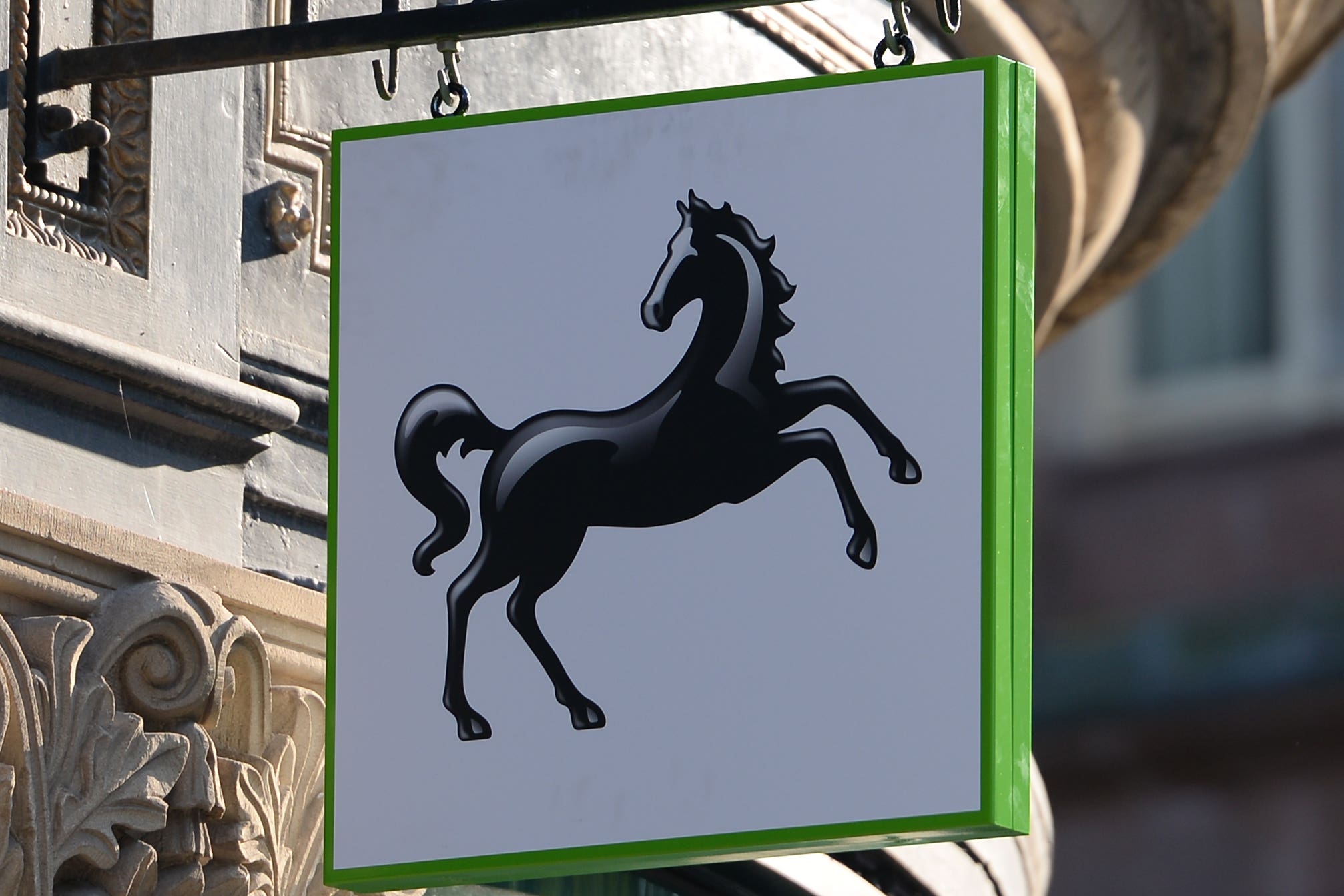Lloyds reveals stronger-than-expected profit as consumer confidence picks up
The banking giant reported a pre-tax profit of £1.8 billion between July and September.

Lloyds Banking Group has revealed stronger-than-expected earnings over recent months, as the lender said it was seeing signs of improved confidence among consumers.
The banking giant reported a pre-tax profit of £1.8 billion between July and September, about 2% lower than the £1.9 billion generated this time last year.
It nevertheless came in significantly ahead of the expectations of analysts, who had been anticipating a profit of about £1.6 billion for the third quarter.
The bank said its underlying net interest income – meaning the amount it generates from loans minus what it pays out on savings – declined 6% year on year.
This came as its customers continued to refinance their mortgages on to lower-rate deals, in line with UK interest rates starting to come down.
Meanwhile, Lloyds said its customers were showing increasing financial confidence as cost-of-living pressures continue to ease.
It revealed a 5% increase in spending on non-essential items among its customers over the first nine months of the year, while average spending on energy bills dropped nearly 20%.
The bank also highlighted that average spending on charitable giving was about a quarter higher than this time last year.
William Chalmers, Lloyds’ chief financial officer, said the lender had received a strong level of mortgage applications through the year.
This led to an increase in the total amount lent to customers over the latest quarter, and Mr Chalmers said lending activity was expected to grow during the rest of 2024, with house prices forecast to rise 1.3% this year.
We hope the Budget will be a confidence-boosting event when it comes around, but there has clearly been a period of uncertainty before that
Mr Chalmers said Lloyds, which owns Halifax and is the UK’s largest mortgage lender, was looking forward to getting “clarity” from the upcoming autumn Budget.
“We hope the Budget will be a confidence-boosting event when it comes around, but there has clearly been a period of uncertainty before that,” he said.
The impact of uncertainty on consumer behaviour has been “very limited”, but he pointed to some activity including a slight increase in pension withdrawals in anticipation of tax changes.
A “pro-growth” Budget, including measures that stimulate investment, could help support the mortgage market, Mr Chalmers added.
The finance chief also hinted that any increase to tax rates for banks in the Budget could have an impact on how competitive the UK is as a financial centre.
He said: “The bank sector – and certainly we at Lloyds – are one of the UK’s largest taxpayers already, and actually we take some pride in making our contribution to the society of which we are apart.
“It is also the case that it is important to have a competitive, stable tax regime to encourage the type of investment and lending that we would seek to do to promote the growth agenda.”
Charlie Nunn, Lloyds’ chief executive, said the bank was “making good progress on our strategy and remain on track to deliver higher, more sustainable returns” while “continuing to provide support to our customers”.
Bookmark popover
Removed from bookmarks